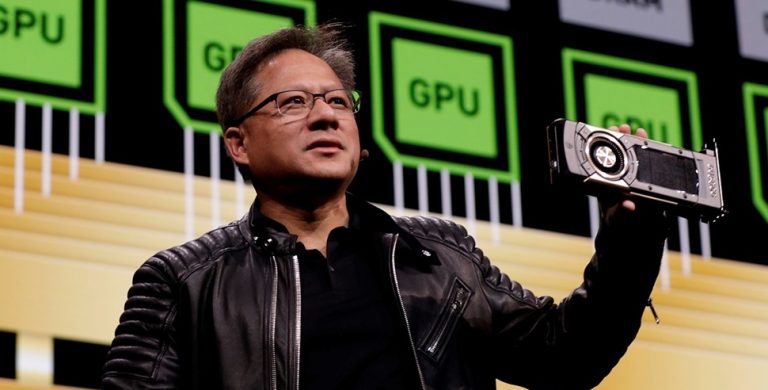
Nvidia CEO Jensen Huang has flatly dismissed the increasingly popular narrative that artificial intelligence will unleash mass unemployment, directly rebutting claims by Anthropic CEO Dario Amodei, who warned that AI could gut entry-level white-collar jobs on a historic scale.
Speaking to reporters at the VivaTech 2025 conference in Paris, Huang dismissed Amodei’s recent prediction that up to 20% of jobs could vanish within five years as a result of AI disruption, calling it both alarmist and self-interested.
“I pretty much disagree with almost everything he says,” Huang told reporters. “He thinks AI is so scary, but only they should do it.”
Register for Tekedia Mini-MBA edition 19 (Feb 9 – May 2, 2026).
Register for Tekedia AI in Business Masterclass.
Join Tekedia Capital Syndicate and co-invest in great global startups.
Register for Tekedia AI Lab.
Amodei, who leads the developer of the Claude family of AI models, had told Axios that a wave of job displacement is inevitable, especially in sectors like law, finance, tech, and consulting. He warned governments to stop “sugarcoating” the threat and said society must prepare for AI’s economic shock.
But Huang, whose company Nvidia has become the most valuable semiconductor firm on earth, argued that AI’s transformative effects do not spell doom.
“Do I think AI will change jobs? Yes — it’s changed mine,” he said. “But I also believe AI is not that expensive and will open creative possibilities.”
Huang likened responsible AI development to medical research, where transparency and open collaboration are vital.
“If you want things to be done safely and responsibly, you should do it in the open,” he said, suggesting Amodei’s grim outlook could serve as a gatekeeping strategy.
He’s not alone in voicing optimism. Cognizant CEO Ravi Kumar told Business Insider that AI will help fresh graduates by lowering the skill barrier.
“AI enables faster upskilling,” Kumar said, “and reduces the need for years of deep domain expertise.”
However, the fears expressed by Amodei have been shared by others. OpenAI CEO Sam Altman, while more measured, has repeatedly said that AI could upend labor markets. IBM CEO Arvind Krishna announced in 2023 that the company would pause hiring for roles that could be replaced by AI, including back-office functions like human resources. Krishna projected that up to 30% of non-customer-facing roles could eventually be automated.
Goldman Sachs analysts have also warned that as many as 300 million jobs globally could be exposed to some level of automation due to generative AI, especially in developed economies.
More recently, companies have started to act. In early 2024, Duolingo cut 10% of its contract translators, citing improvements in AI translation tools. Similarly, Dropbox laid off 16% of its workforce in mid-2023, with CEO Drew Houston saying the company needed to “act now” as AI begins to reshape its product roadmap. Chegg, the online education firm, also cited ChatGPT’s rise as a reason for slashing its workforce.
Even in publishing and media, companies like BuzzFeed and Gannett have downsized editorial roles, while simultaneously expanding AI-generated content initiatives.
Labor market data appears to support concerns. Revelio Labs found that since January 2023, job postings for positions most exposed to AI — including data entry clerks, IT specialists, and legal assistants — have declined more sharply than others, suggesting that employers are already reshaping their hiring plans based on automation.
Earlier this year, Dr. Sriraam Natarajan, a professor of computer science at the Erik Jonsson School of Engineering and Computer Science at the University of Texas at Dallas, expressed the view of Huang. Natarajan sees AI as a technology breakthrough that will help increase productivity rather than make people’s jobs obsolete.
“The goal of AI is not to replace jobs but to train people to more effectively do things they are good at,” Natarajan said. “The mundane aspects of a job can be offloaded to AI. The creativity of these jobs will still rely on humans.”



